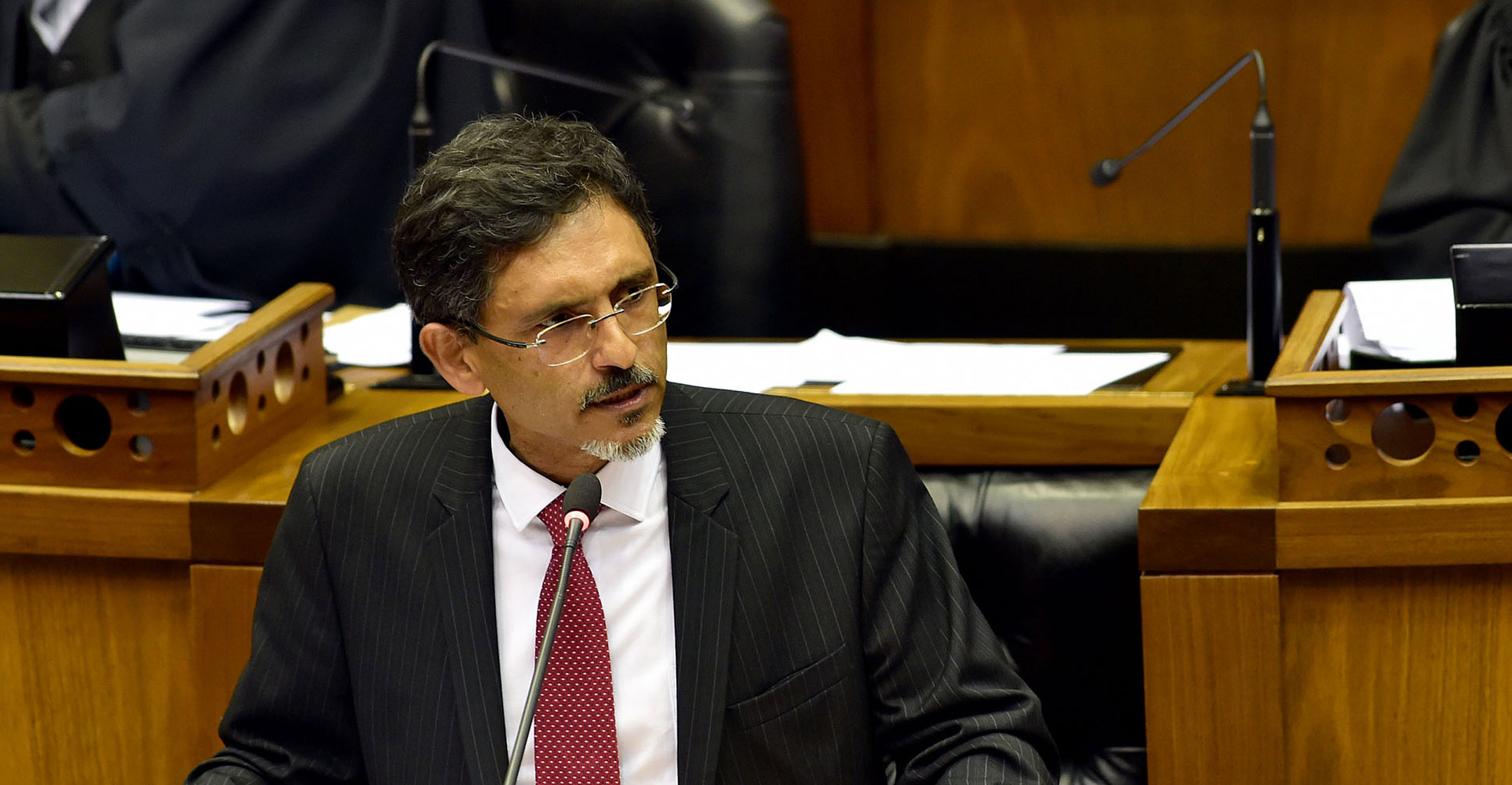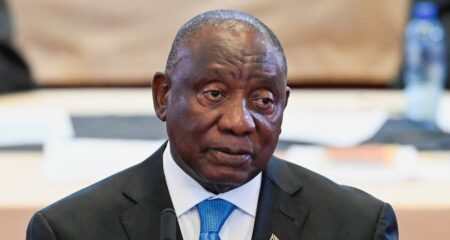
Trade & industry minister Ebrahim Patel was under heavy fire on Twitter and other social media platforms on Sunday over his continued insistence that unfettered e-commerce cannot take place in South Africa.
The minister’s intransigence and petty mindedness is not only misguided but could backfire badly, with the public goodwill government has generated over its initial handling of the Covid-19 pandemic rapidly evaporating.
If Patel doesn’t back down on this issue, or if President Cyril Ramaphosa doesn’t force him to, there’s a real danger that public anger is going to spill over, and that sentiment will turn against the lockdown measures. And then what?
On Saturday, at a government media conference, Patel effectively shot down requests by online traders to allow unfettered e-commerce in South Africa, saying doing so would be seen to be “unfair competition”.
“If we open up any one category, let’s say e-commerce, unavoidably there’s enormous pressure to do the same for physical stores, for spaza shops, for informal traders, so there is fair competition,” the minister said.
But as Stuart Theobald, chairman of the financial research and consulting firm Intellidex, pointed out in a tweet on Sunday: “This really makes no sense. There is nothing ‘fair’ about this crisis. We should allow all economic activity that is safe.”
Top priority
Whatever one thinks of the merits or otherwise of the Covid-19 lockdown, it has put South Africa in a perilous economic position from which it will take many years to recover. The economy is already in a parlous state thanks to the ANC’s looting and mismanagement of the economy under the disastrous Jacob Zuma administration. Government debt is going to skyrocket (even further), people are going to go hungry and some (and possibly many) will die as a result. The “cure” being forced on South Africa by the state could turn out to be much worse than the disease.
Getting the economy back to full steam, while protecting public health, must be the top priority of this government. Yet Patel seems more worried about ensuring there isn’t unfair competition between e-commerce companies — which are ideally positioned to serve the country in this difficult time — and those that haven’t developed their online strategies. It’s the sort of foolish thinking one would expect from a woolly-minded socialist like Patel, steeped as he is in Marxist tradition. A bit like Pravin Gordhan still trying to save South African Airways when most right-minded people know it’s time to put the “national carrier” out of its misery and move on.

Here’s why the ban on unfettered e-commerce makes zero sense:
- Allowing it would discourage people from visiting supermarkets and other retailers that are allowed to trade under levels 5 and 4 of the lockdown, and when the levels are relaxed further. Surely the idea is to keep people out of places (shops) where they can get sick?
- E-commerce companies should (and will) ensure that safe practices are in place to limit the spread of the coronavirus. (Regulations should stipulate the health procedures these firms should follow, and they should be penalised if they don’t.) Consumers don’t have to sign for deliveries – there are solutions already in place to obviate this.
- Unfettered online shopping is actively encouraged by governments in other countries under lockdown precisely because it allows trading to continue without inflicting unnecessary additional economic damage. China did this in Wuhan, the original epicentre of the virus, so why is South Africa different? Let’s not borrow too many ideas from China, but this is one area where we should take lessons.
- Government officials, including President Ramaphosa, have often made statements in public about the need for South Africa to embrace the fourth Industrial Revolution. It’s a meaningless term, which I greatly dislike, but what’s meant by it is the need to embrace technology and innovation. Is 4IR just a meaningless bit of jargon that Ramaphosa and his colleagues have been using to add colour to their speeches in recent years? This is precisely the time when South Africa should be looking to its innovators, including those in e-commerce, to help stave off the worst of the economic fallout of this crisis.
- Many brick-and-mortar retailers already have online shopping strategies in place and are ready to serve consumers through this channel. Those that don’t will be forced to innovate quickly – which, in turn, will have long-term benefits.
Irrational decisions
There are many other aspects of the lockdown that make little sense, but this is a technology publication so I’m going to avoid airing my views on those here.
What I will say is that we should all be deeply concerned about a political elite that appears to be enjoying the power to craft sometimes arbitrary regulations that undermine our freedoms, with little thought about the economy. Everything the politicians do during this time needs to be scrutinised and debated in great detail, and challenged in court when necessary. Because once we cede our civil liberties to the ruling class, it may be hard to get those liberties back.
As a starting point, we need to stand up to irrational decisions by politicians who think they know better. E-commerce is one area where this fight needs to be waged. — © 2020 NewsCentral Media
- Duncan McLeod is editor of TechCentral




